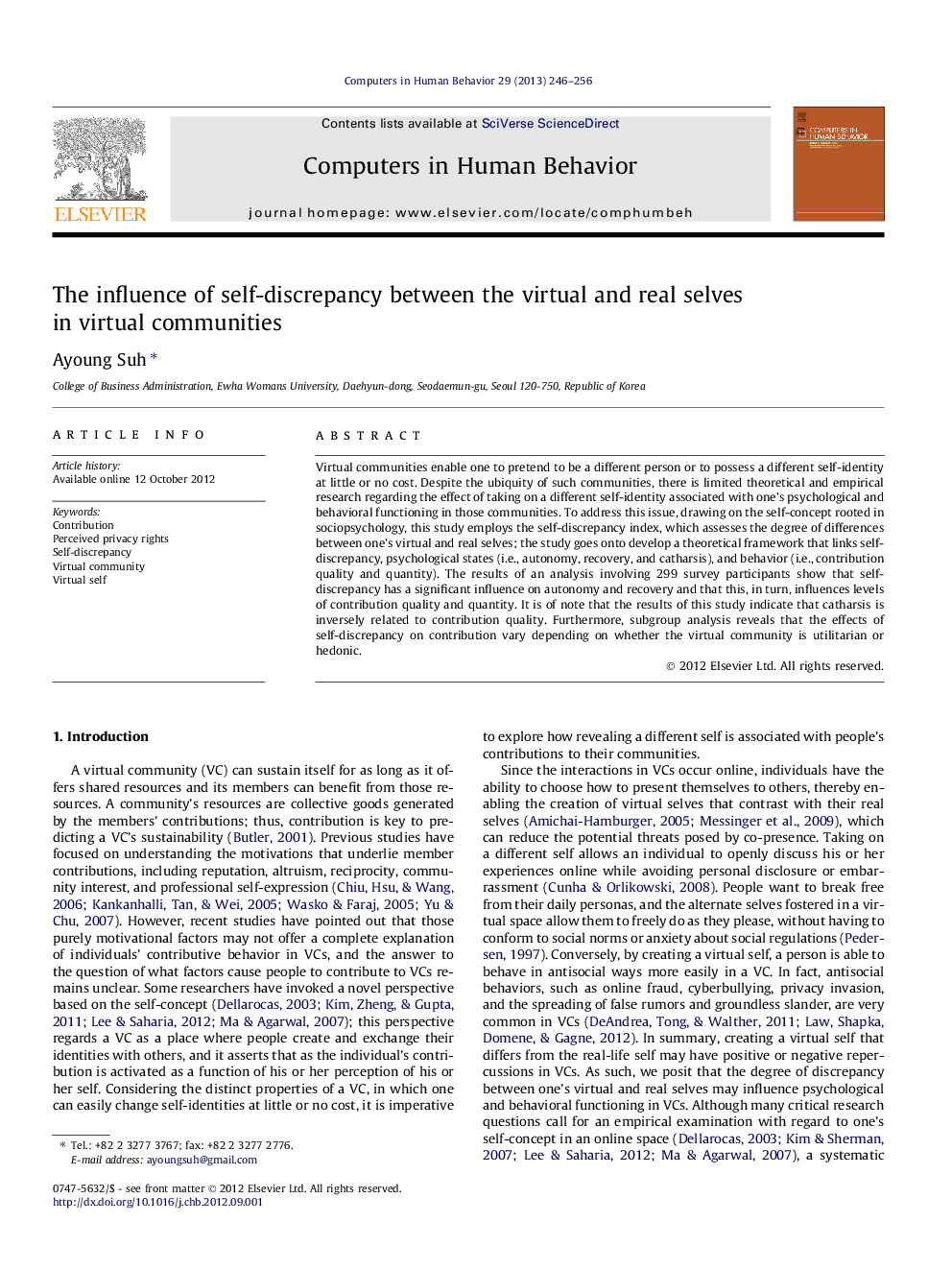| کد مقاله | کد نشریه | سال انتشار | مقاله انگلیسی | نسخه تمام متن |
|---|---|---|---|---|
| 351172 | 618464 | 2013 | 11 صفحه PDF | دانلود رایگان |

Virtual communities enable one to pretend to be a different person or to possess a different self-identity at little or no cost. Despite the ubiquity of such communities, there is limited theoretical and empirical research regarding the effect of taking on a different self-identity associated with one’s psychological and behavioral functioning in those communities. To address this issue, drawing on the self-concept rooted in sociopsychology, this study employs the self-discrepancy index, which assesses the degree of differences between one’s virtual and real selves; the study goes onto develop a theoretical framework that links self-discrepancy, psychological states (i.e., autonomy, recovery, and catharsis), and behavior (i.e., contribution quality and quantity). The results of an analysis involving 299 survey participants show that self-discrepancy has a significant influence on autonomy and recovery and that this, in turn, influences levels of contribution quality and quantity. It is of note that the results of this study indicate that catharsis is inversely related to contribution quality. Furthermore, subgroup analysis reveals that the effects of self-discrepancy on contribution vary depending on whether the virtual community is utilitarian or hedonic.
► We examine the influence of discrepancy between the virtual and real selves.
► Self-discrepancy has a significant influence on autonomy and recovery.
► And autonomy and recovery, in turn, influence contribution quality and quantity.
► Catharsis is inversely related to contribution quality.
► The effects of self-discrepancy vary depending on the type of virtual communities.
Journal: Computers in Human Behavior - Volume 29, Issue 1, January 2013, Pages 246–256